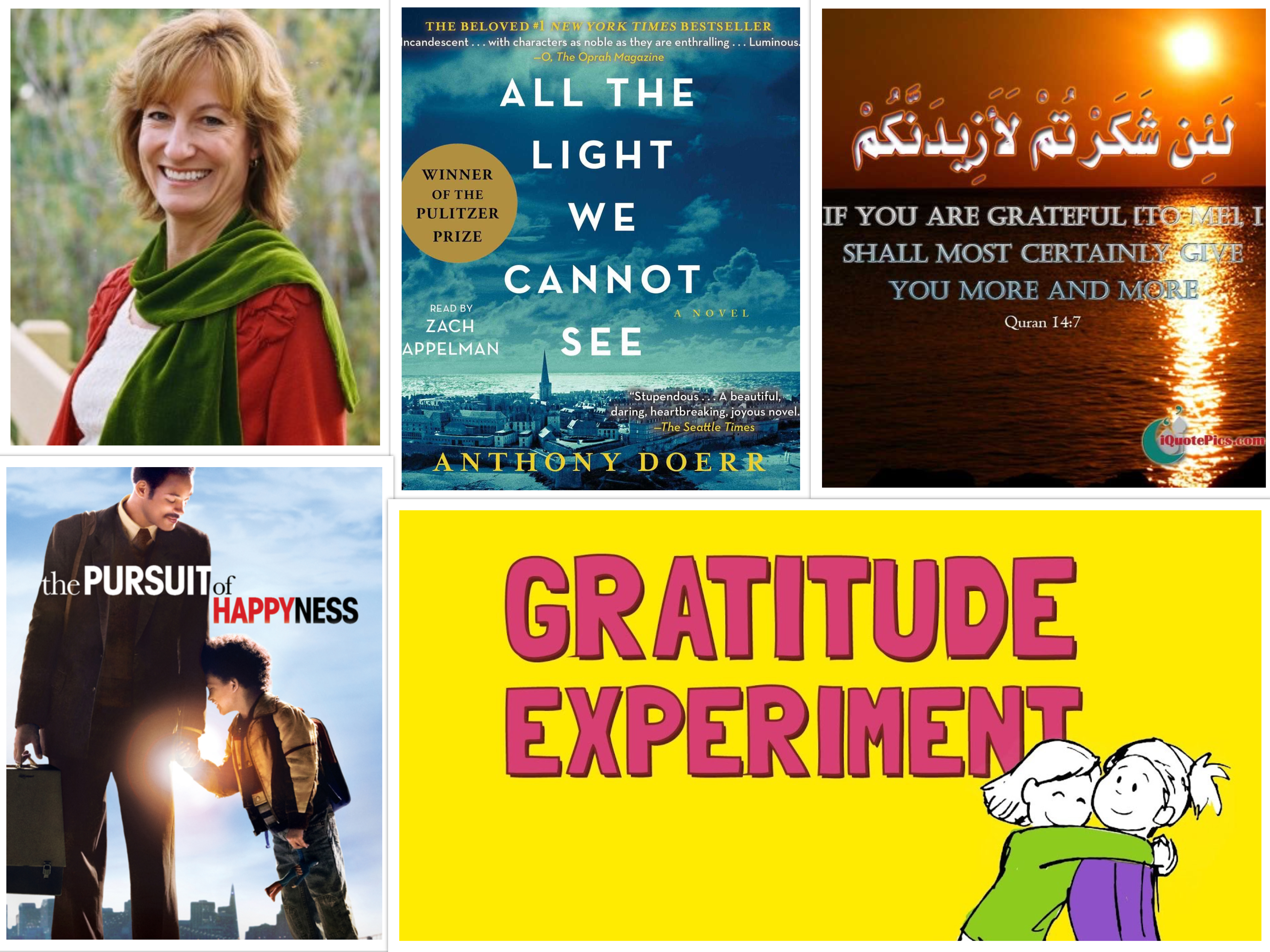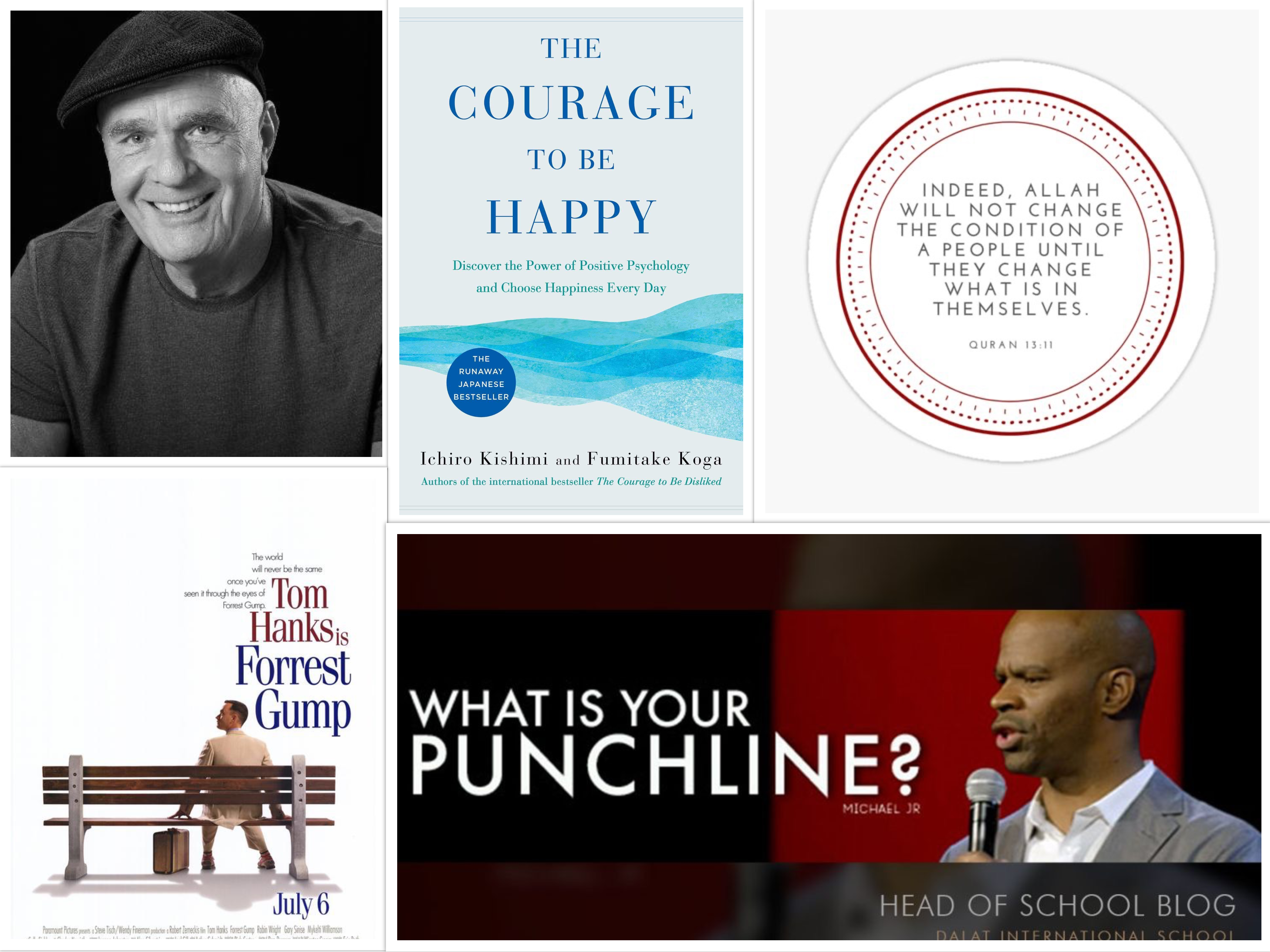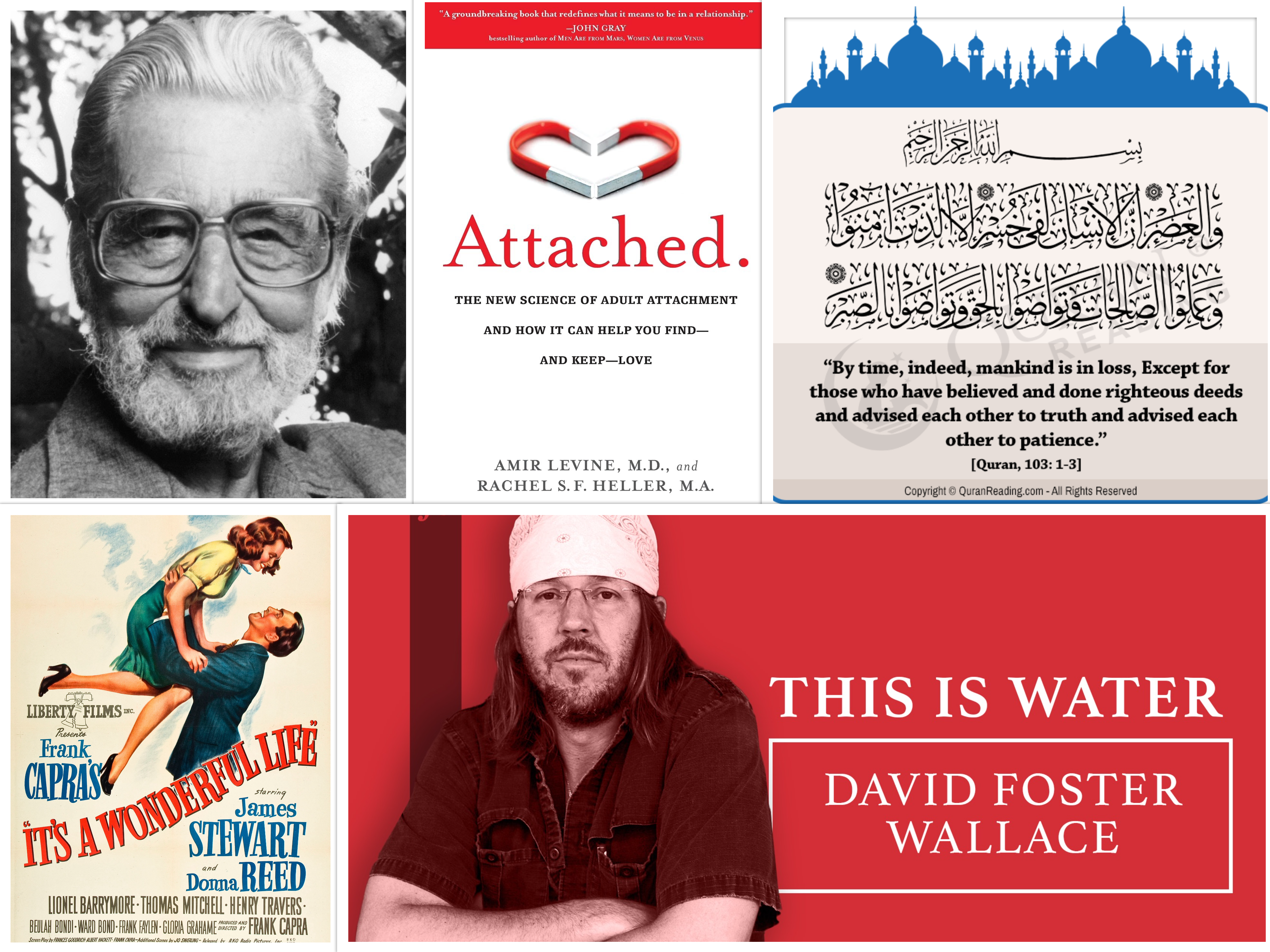Sunday Supplement #29 (November 28th, 2021)
Below is another Sunday Supplement with a quote worth sharing, a book worth reading, a movie worth watching, brainfood worth consuming, and a spiritual passage worth pondering.
I hope you take something away from these recommendations that enriches your week ahead!
Quote of the Week:
“Gratitude is a powerful catalyst for happiness. It’s the spark that lights a fire of joy in your soul.”
– Amy Collette
Book of the Week:
All the Light We Cannot See – Anthony Doerr
All the Light We Cannot See is an international bestseller and winner of the Pulitzer Prize for fiction (2015). It follows two narratives and tells a wonderful story set in World War II. =
Marie-Laure lives with her father, who works in the Museum of Natural History in Paris as the master of its thousands of locks. When Marie-Laure turns 6, she starts to go blind. Her father builds her a to-scale miniature model of their neighborhood so she can memorize by touch and be able to navigate the city.
When Marie-Laure turns 12, the Nazis occupy Paris, and she and her father flee to the walled citadel of Saint-Malo to live by the sea with her reclusive great-uncle. Marie-Laure doesn’t know that they carry the museum’s most valuable jewel that the Nazis are after.
In a mining town in Germany, an orphan, Werner, grows up with his younger sister. They become enchanted by a radio they find and the stations they come across. Werner becomes fascinated with building and fixing new instruments, which wins him a place at a brutal academy for Hitler Youth.
Werner’s prowess as an inventor lands him a role with a special assignment to track the resistance to the Nazis. This task brings him across all fronts of the war and ultimately into Saint-Malo.
The book has so many lessons integrated into a beautiful tale. The characters are excellently crafted and allow for a depth that is felt long after finishing the novel.
Movie of the Week:
Will Smith brilliantly plays a struggling salesman who takes custody of his son after his wife leaves them. The film is based on Chris Gardner’s memoir and recounts the period of his life when he struggled to make ends meet, take care of his son, and battle homelessness.
The movie came out in 2006 and came up against many excellent films at the 2007 Academy Awards. The only Oscar nomination The Pursuit of Happyness received was for Will Smith’s portrayal of Chris Gardner. However, the film arguably should have been nominated for many other categories.
There are many good things to take away from the movie. The positive message is evident by the end of the story, and there are little moments throughout that will bring tears and smiles.
If you’re looking for a movie that is uplifting and has depth, this should be a movie you check out. You’ll find it on many top movie lists for a reason.
Brainfood of the Week:
The Gratitude Experiment — WatchWellCast
WatchWellCast is a YouTube channel that uploads animated videos that explore physical, mental, and emotional paths to wellness.
In this video, WatchWellCast delves into the causes behind happiness and how we can improve our overall happiness levels.
Humans operate on what’s called the hedonic treadmill. We generally stabilize on one level of happiness. Specific events might increase that level for a short period, but you come back down and settle at your normal level.
The things that give us temporary spikes in happiness can be taken for granted, and over time can stop psyching us up.
A simple way to improve our overall happiness levels and create new baselines for our perspective is practicing gratitude. By setting time aside for appreciation and examining what you’re thankful for and why you stop ignoring what makes you happy.
WatchWellCast then goes into some scientific background of Dr. Robert Emmons and his studies on happiness. An exercise prompt at the end of the video is a great practice to incorporate into your daily routine.
The video is only four minutes long, and it is an excellent summary of happiness and a tool to increase yours.
Closing Spiritual Passage:
“If you are grateful, I would certainly give you more; and if you are ungrateful, My chastisement is truly severe.”
– Surah Ibrahim 14:7
One of the things I’ve worked on over the past year is control over my thoughts.
I experienced a massive dip in many different areas of my life, and I was at a loss for why I no longer felt as good as I had before.
This passage from the Quran perfectly emphasizes the importance of gratitude and how important that is for bringing more good things into your life.
When I was depressed and sad, all I could see was the negative side of things. I realized later that it was okay to have dips, but I needed to build my base level back to being grateful.
In the passage above, there is also a warning for those who are ungrateful. It is no surprise to me that the lack of gratitude is linked with severe chastisement.
While I do necessarily agree with the level of punishment, I believe it is an important reminder of the depths of negativity we can experience when ungrateful.
I’ve worked on my mindset to be more positive and grateful, and it makes me realize how much in my life, even in the down moments, I’m thankful to have.
Check in with yourself about the things you are thankful for and have a blessed week ahead!
1 Comment



